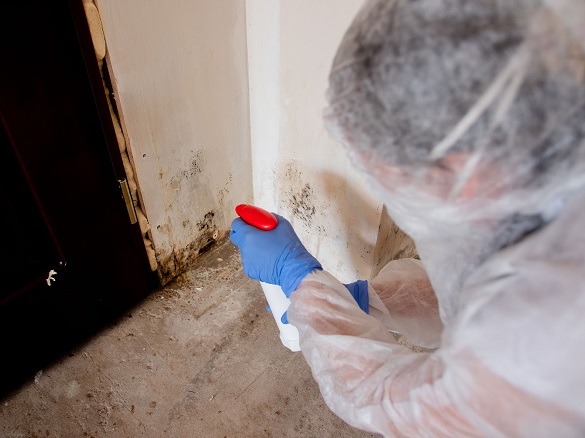 Along with the arrival of summer comes an unwanted guest: mold. These fungi need a warm and humid environment to survive. Preventing mold growth might require prep work, but it’s easier and more affordable than dealing with a full-on mold infestation later on, which will require an expert mold remediation specialist, like Rytech Nashville.
Along with the arrival of summer comes an unwanted guest: mold. These fungi need a warm and humid environment to survive. Preventing mold growth might require prep work, but it’s easier and more affordable than dealing with a full-on mold infestation later on, which will require an expert mold remediation specialist, like Rytech Nashville.
Here are some steps you can take to stop mold growth before it even starts.
Clean and disinfect your home. Focus on areas prone to mold growth such as your bathroom, kitchen, basement, garage, attic, walls, and ceilings. Dirt and moisture can facilitate mold growth; taking these out of the equation can help prevent a mold infestation from taking place.
Fabric surfaces such as couches, curtains, clothing, rugs, and towels are porous and susceptible to mold growth, especially if they’re left wet for too long. Keep them dry at all times.
Also, make it a habit to remove any standing water on any surface immediately.
Keep humidity at bay. Hot showers, cooking, and the warmer summer air all add to your home’s humidity. Use a hygrometer to measure the relative humidity level inside your home. Ideally, indoor relative humidity should be between 30 to 50 percent to prevent mold growth. It also deters pests such as cockroaches and dust mites.
It should be an automatic thing to turn on the exhaust fan in the bathroom while you’re taking a shower and in the kitchen while you’re cooking. Steam provides a sufficient amount of moisture for mold to thrive.
Control the temperature. Summer means temperatures are higher than normal, even inside your home. Even if you are trying to save a few bucks on A/C, setting your thermostat within 69 to 73 degrees Fahrenheit makes it more difficult for mold to grow. Mold grows best between 77 to 86 degrees Fahrenheit.
Improve air circulation. Consider investing in ceiling fans. Opening all interior doors will allow air to circulate more efficiently throughout your home, which in turn will lower temperatures.
Do seasonal maintenance checks. Inspect your home for busted pipes, leaking roofs (especially if it’s a rainy summer), and repair them immediately. Make sure your HVAC system is checked by a professional every 6 months or at least once a year at a minimum.
Mold can damage your home not just during the summer months but any time of the year. If you notice a musty smell in your home, there’s probably mold growing somewhere. If the odor is there but you can’t find any traces of mold growth, it’s best to get in touch with a mold remediation professional. Rytech Nashville has delivered quick and effective mold remediation solutions to Middle Tennessee residents since 1995. IICRC-certified technicians will discuss the types of mold found and suggest an immediate and efficient plan of action to remove the mold and detect the moisture causing it. Schedule an appointment today – a member of Rytech Nashville’s Customer Service Team will get in touch and see how they can help.
Rytech Nashville has become a leader in the water damage restoration and mold remediation industry. From its humble beginnings in one location, the company has reached exponential growth and currently provides service to 49 major markets across 25 states. Call (615) 751-8445 for more information.

 Businesses should not let down their guard when it comes to cybersecurity. Cybercriminals persist in sending malicious attachments, links to fraudulent websites, and scams related to Covid-19, with the intent of deceiving people into sending confidential information or into donating money to supposedly charitable causes.
Businesses should not let down their guard when it comes to cybersecurity. Cybercriminals persist in sending malicious attachments, links to fraudulent websites, and scams related to Covid-19, with the intent of deceiving people into sending confidential information or into donating money to supposedly charitable causes.